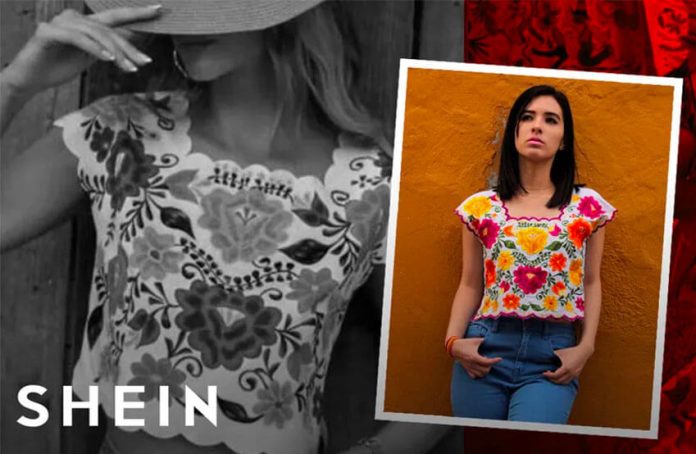YucaChulas, a Mexican textile company in Mérida, Yucatán, has accused the clothing manufacturer SHEIN Mexico of copying its clothing designs.
According to YucaChulas, a SHEIN product is a design copied from a piece made by them in 2017 for México en Colores, a blog that features Mexican brands with a focus on handmade textiles and embroidery. YucaChulas insists that the only thing that SHEIN changed in their version of the blouse was the colors around the edges of the neck and arm holes, and that the rest of the design and coloring of the shirts is identical to their original.
SHEIN, a Chinese company with affiliates in 220 countries around the world, is known for its fast fashion ethos and cheap final products.
Mexico’s Culture Ministry joined the fray on Twitter, saying it was “strongly against the inappropriate cultural appropriation … by making blouses of short huipiles that are also made in various Maya communities in Yucatán, Campeche and Quintana Roo.
The ministry said it would demand an explanation for commercialization of a design attributed to the communities of Yucatán. The fight is one of many that have surfaced in recent years that accuse large, international brands of cultural appropriation — or the use of designs or products whose ownership has been documented as belonging to indigenous communities in Mexico.
International brands like Louis Vuitton, Carolina Herrera, the French designer Isabel Marant, and most recently the clothing and home interiors store Zara have all been accused of cultural appropriation in fashion, in each case with the Mexican government stepping in to defend the intellectual property rights of artisans.
There have also been several campaigns launched to try to help shoppers determine what are real Mexican artisanal handcrafts and clothing and what are “fake” or “pirated,” i.e. mass produced or from other countries altogether.
